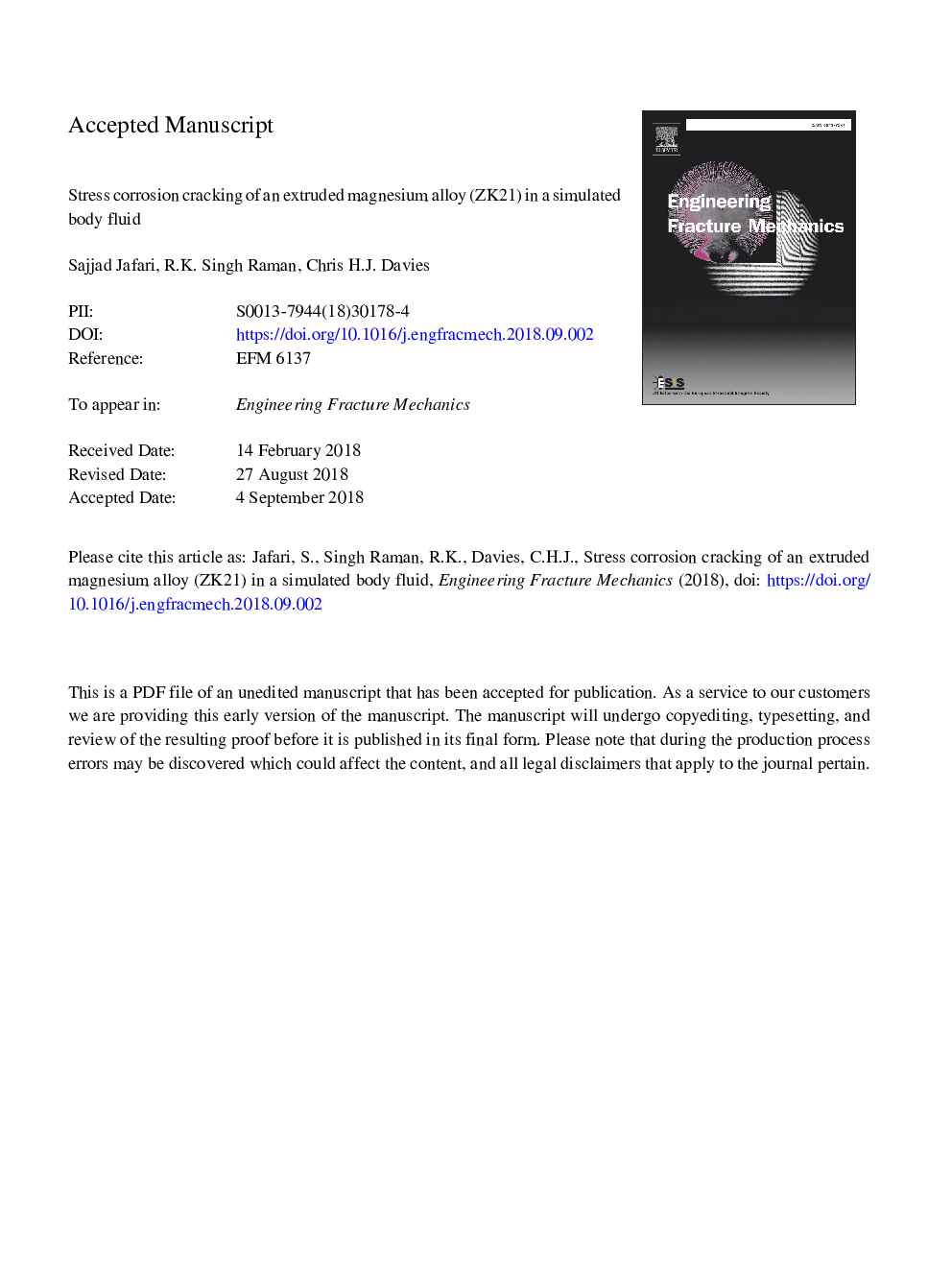| Article ID | Journal | Published Year | Pages | File Type |
|---|---|---|---|---|
| 10140192 | Engineering Fracture Mechanics | 2018 | 23 Pages |
Abstract
Magnesium (Mg) alloys are attractive candidate materials for resorbable implants including cardiovascular and orthopaedic medical devices e.g., stents and bone plates/screws. Bioresorbable implants provide a temporary support for the malfunctioned tissue/bone to heal and then completely degrade in the body. In such uses the implant material must possesses an adequate resistance to cracking such as corrosion-assisted-cracking fractures including stress corrosion cracking (SCC) and corrosion fatigue (CF). This study evaluates SCC of an extruded Mg alloy, ZK21, using slow strain rate tensile (SSRT) testing at a strain rate of 3.1â¯Ãâ¯10â7 in modified simulated body fluid (m-SBF) at 37â¯Â°C. SCC tests under different electrochemical conditions suggest that the alloy is susceptible to SCC with a substantial decrease in mechanical properties.
Related Topics
Physical Sciences and Engineering
Engineering
Mechanical Engineering
Authors
Sajjad Jafari, R.K. Singh Raman, Chris H.J. Davies,
